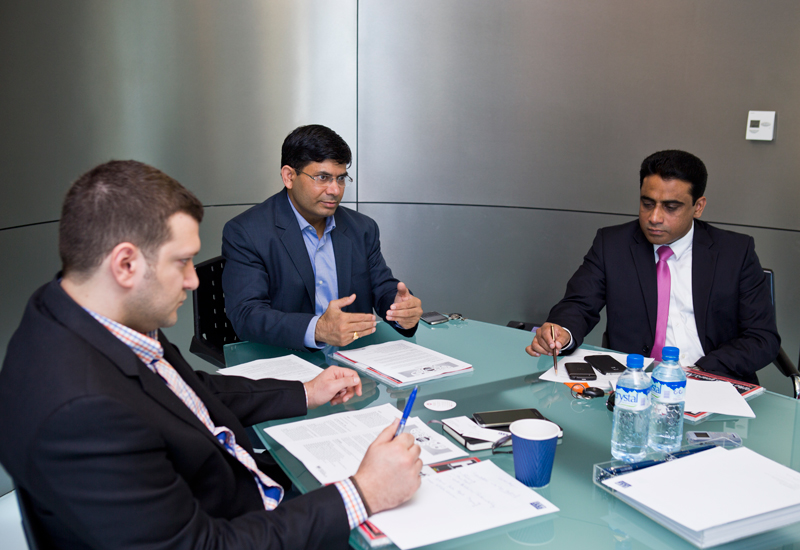 Atlantis The Palm, Dubai's Bhanu Pratap Singh, Anantara Hotels & Resorts Abu Dhabi’s Madhu Gopal, and Al Dar Sweets' Wissam El Cheikh Hassan debate key procurement issues in the region ahead of Hotelier's Procurement Summit.
Atlantis The Palm, Dubai's Bhanu Pratap Singh, Anantara Hotels & Resorts Abu Dhabi’s Madhu Gopal, and Al Dar Sweets' Wissam El Cheikh Hassan debate key procurement issues in the region ahead of Hotelier's Procurement Summit.
How do you align purchasing decisions with the priorities of kitchen staff?
Wissam: Everyone struggles with this and I understand how it happens from a purchasing side. For example chefs think they’re artists and that they’re superior. I can call a client and say “I can come over” and he says “I’ll see if the chef is available” and I say “look you’re not the chef’s assistant — you are the purchasing manager”.
Madhu: I’ll tell you why the purchasing manager always has to ask the chef’s opinion. When it comes to food if you order something and it’s not the right thing, then you’re responsible.

| Advertisement |
Wissam: I know a chef and they had a blind tasting session and brought in four suppliers and both chefs agreed on ‘Supplier A’.
But one had monkey business with ‘Supplier B’ and one had monkey business with ‘Supplier C’ and then what happened was they talked with the purchasing manager and he said ‘you both agreed on Supplier A’ they both said “no we don’t want this guy”. Chefs think they want chicken from ‘Supplier A’ but at the end of the day they just want chicken.
Bhanu: The process needs to be made a bit clearer, a bit more transparent. For example, if we talk about chicken, in a blind tasting session we say “it’s up to you”. Quality is a top priority, it has the impact on the decision making. The second factor is the service of the supplier, how good his service is and the third factor is price.
We do an online bidding and the purchasing manager and other companies don’t know what others are bidding. So we tell the chef“give us your quality check”, and we do a performance rating and we do benchmarking from the entire session. So although we want quality, if we can’t afford something it’s up to the chef to decide on what they want and then we sign a contract for one year.
We tell the supplier that if their price is going up and down they can come and talk to us, which gives them the freedom to do that. I then have the chef, finance and myself sign the document and then the buyer who is actually buying has the decision to sign the document. So we have less problems because we’ve defined the right quality, the right price and the right service.
When it comes to food purchasing, how do you ensure food is safe?
Bhanu: It’s very important. When we started we wondered, how can we make sure it’s safe? There are companies that do safety audits and suppliers are certified as being safe. If there was a company all the hotels wouldn’t have to do the same exercise again and again, we could have one agency’s final feedback — is it good or not?
Wissam: You could have a website where you rate all the suppliers and if there’s any food complaint you could upload it there and then if you want to find out about ‘Supplier A’ you could go to the website.
Bhanu: We waste close to AED100,000 ($2722) every year on this exercise. Why is there no agency in Dubai that would do this rating for suppliers? There are companies that do it but just for individual hotels.
Madhu: It is happening in our hotels. There is someone employed to go to all of the suppliers and to tell the suppliers what the hotel standards are. But as Bhanu said there needs to be someone in the market to certify.
Dubai and Abu Dhabi municipality certify each and every company and that is one of the major concerns on the supplier side, and some of the companies are not following the system. So we need a company that certifies each supplier.
Article continues on next page ...








 Search our database of more than 2,700 industry companies
Search our database of more than 2,700 industry companies









